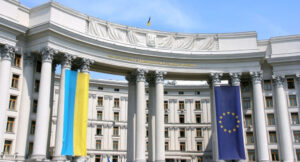
On May 20, the Ukrainian Ministry of Foreign Affairs announced a tender for the purchase of compulsory motor third-party liability insurance services, according to the Prozorro electronic public procurement system. The expected cost of the services is 156,903 thousand hryvnia.
No tender security is required. The deadline for submitting bids is May 28.
compulsory motor third-party liability insurance, Ministry of Foreign Affairs of Ukraine, TENDER
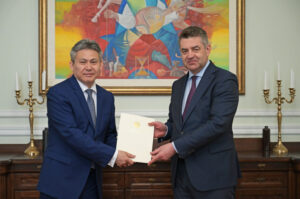
Deputy Minister of Foreign Affairs of Ukraine Yevhen Perebyinis accepted copies of credentials from the newly appointed ambassador of the Republic of Kazakhstan, Tolejan Barlybayev.
According to the press service of the Ukrainian Foreign Ministry, the deputy minister congratulated Tolejan Barlybayev on the start of his third diplomatic term in Ukraine, this time as ambassador extraordinary and plenipotentiary, and wished him every success in his important mission for the benefit of the two countries and peoples.
Perebyinis thanked Kazakhstan for its support for Ukraine’s territorial integrity. Noting Astana’s commitment to the fundamental principles of international law and the Charter of the United Nations, he stressed the importance of establishing a just and lasting peace in Ukraine.
“The parties discussed ways to intensify bilateral political dialogue and deepen trade, economic, cultural, and humanitarian cooperation between the two countries,” the statement said.
On April 17, 2025, Kazakh President Kassym-Jomart Tokayev appointed Tolezhan Barlybayev as the new ambassador of the Republic to Ukraine.
He previously worked at the Kazakh embassies in Ukraine, Poland, and the Netherlands. He served as head of the Europe and America Department, headed the secretariat of the Kazakh Foreign Ministry, and worked at the Center for Foreign Policy in the Presidential Administration.
In addition, Barlybayev served as Kazakhstan’s ambassador to Slovakia, Croatia, and Bosnia and Herzegovina.
Previously, Darkhan Kaletaev held the position of ambassador to Ukraine for more than five years.
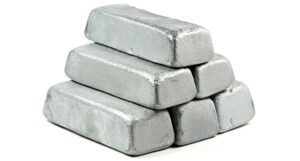
Ukraine increased imports of tin and tin products to $1.17 million (+32.1%) in January-April 2025. Exports decreased by $55,000 compared to $107,000 a year earlier. In April, imports amounted to $282,000, while exports amounted to $1,000.
Tin is mainly used as a safe, non-toxic, corrosion-resistant coating in its pure form or in alloys with other metals. The main industrial applications of tin are in white tin (tin-plated iron) for the manufacture of food containers, in solders for electronics, in domestic piping, in bearing alloys, and in coatings made of tin and its alloys. The most important alloy of tin is bronze (with copper).

ARX Life Insurance Company (Kyiv) collected insurance premiums totaling UAH 81.551 million in January-March 2025, which is 3.12% more than in the same period last year. This was reported by Standard-Rating on its website in information about the update of the company’s credit rating/financial stability (reliability) rating at the level of “tsAA” on the national scale.
The amount of payments and reimbursements made by the insurer in the first quarter of 2025 decreased by 10.55% to UAH 15.216 million compared to the same period in 2024. Thus, the insurer’s payment ratio decreased by 2.85 percentage points to 18.66%.
The insurer’s acquisition expenses for the first quarter of 2025 decreased by 1.32% to UAH 42.991 million compared to the same period in 2024.
As of April 1, 2025, the company’s assets increased by 1.07% to UAH 379.145 million, equity grew by 4.80% to UAH 292.194 million, liabilities decreased by 9.74% to UAH 86.951 million, cash and cash equivalents increased by 44.32% to UAH 167.356 million.
Based on the results of the first three months of 2025, the companies received a net profit of UAH 13.395 million.
At the same time, RA notes that as of the reporting date, the insurer had made financial investments in the amount of UAH 202.09 million, consisting of government bonds and government bonds (92.52% of the portfolio) and deposits in banks with an investment-grade credit rating (7.48% of the portfolio).
ARX Life is part of the international insurance holding company Fairfax Financial Holdings Ltd. ARX Life is one of the top ten companies in the life insurance market in Ukraine.
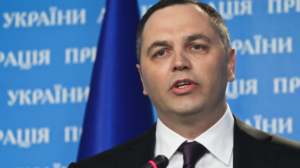
Former Ukrainian politician Andriy Portnov was shot dead near an American school in Madrid, Reuters reports, citing a source close to the investigation.
“An unknown armed man or men shot and killed former Ukrainian politician Andriy Portnov on Wednesday morning at the gates of an American school in the affluent Madrid neighborhood of Posuello,” Reuters reported on its website on Wednesday.
According to the report, police received information about the shooting at 9:15 a.m. (7:15 a.m. GMT) local time. At the same time, Madrid police did not name the victim.
Reuters also writes that radio station Cadena SER reported that the man was taking his children to school when he was shot.
Politician and lawyer Andriy Portnov (born 1973) was a member of the Ukrainian parliament in the 5th and 6th convocations (2006-2007, 2007-2010). From April 2010 to February 2014, he was head of the Main Department for Judicial Reform of the Presidential Administration of Viktor Yanukovych and deputy (from January 24, 2014, first deputy) head of the Presidential Administration of Ukraine.
Since December 2021, Portnov has been under US sanctions for influencing the courts. According to journalists from the Schemes program, Portnov left Ukraine in June 2022.
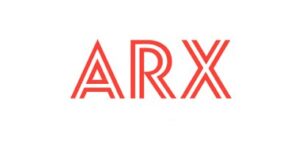
In January-March 2025, ARX Insurance Company (ARX, Kyiv) collected gross insurance premiums in the amount of UAH 1.313 billion, which is 38.67% more than a year earlier, and net premiums in the amount of UAH 1.261 billion (37.11%).
These statistics are provided on the website of RA Standard-Rating regarding the update of the company’s credit rating/financial stability (reliability) rating at the level of “uaААА” on the national scale based on the results of the first quarter of 2025.
Revenues from individuals increased by 40.33% to UAH 711.167 million, while revenues from reinsurers decreased by 44.65% to UAH 2.967 million. Thus, at the end of the first quarter of 2025, individuals accounted for 54.18% of the insurer’s gross premiums, while reinsurers accounted for 0.23%.
Insurance payments sent to reinsurers in January-March 2025 increased by 91.63% compared to the same period in 2024, to UAH 51.912 million. The share of reinsurance companies in insurance premiums increased to 3.96%.
The volume of insurance payments made by the insurer in the first quarter of 2025 increased by 13.92% compared to the first quarter of 2024, to UAH 491.205 million. Given the higher growth rate of gross premiums compared to insurance payments, the level of payments decreased by 8.14 percentage points, to 37.42%. to 37.42%.
As of April 1, 2025, the company’s assets grew by 6.41% to UAH 5.555 billion, equity increased by 1.99% to UAH 2.686 billion, liabilities increased by 10.90% to UAH 2.869 billion, cash and cash equivalents grew by 41.96% to UAH 1.161 billion.
According to the results of the first three months of 2025, the operating loss amounted to UAH 30.5 million, and net profit amounted to UAH 52.513 million.
The information also reports that as of the beginning of the second quarter of 2025, the insurer made financial investments in the amount of UAH 2.664 billion, consisting of government bonds (73.83% of the investment portfolio) and deposits in banks with an investment credit rating (26.17% of the portfolio). Thus, as of the reporting date, the liquid assets exceeded the liabilities of ARX Insurance Company by 1.33 times.
ARX Insurance Company was established in 1994 and is part of the international insurance holding company Fairfax Financial Holdings Ltd. ARX Insurance Company is one of the five leading insurance companies in Ukraine in terms of premiums collected and payments made. It has been the leader in the CASCO segment of the Ukrainian market for 16 years.